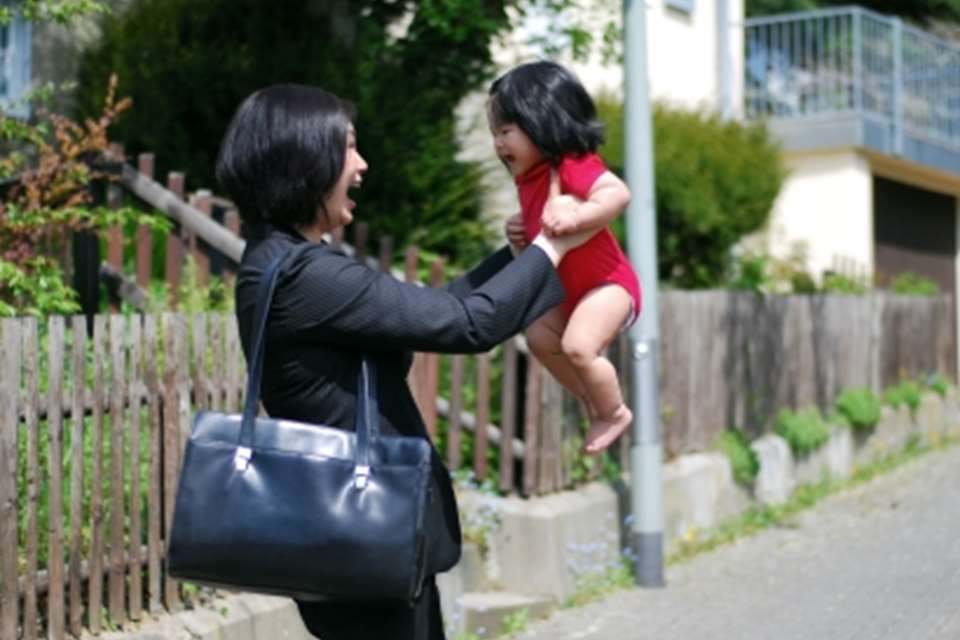Children in care missing out on best early years experiences
Thursday, December 1, 2016
Opportunities to narrow the achievement gap between looked- after children and their peers are being missed, because too few receive high-quality early education.

According to ‘Starting out right: early education and looked after children’, which has been published by the University of Oxford and Family and Childcare Trust, before children in care even start school they are ‘well-behind’ their peers and this achievement gap only widens as they get older.
However, despite numerous studies demonstrating how high-quality early education vastly improves outcomes for disadvantaged children, it says that take-up of the free early education places for two-, three- and four-year-olds is at least 14 percent lower among children in care.
It suggests that the figure could be even lower due to a lack of accessible national data on take-up and the quality of settings attended by looked-after children under five.
The report draws upon existing research, responses from all 152 local authorities across England into the level of early years provision for looked-after children (LAC), along with interviews with professionals and academics in the sector. It has been funded by the Nuffield Foundation.
The report warns that because LAC are already at risk of ‘much poorer outcomes’ they are put at an additional disadvantage when they start school if they have not had good quality early years education.
It goes on to highlight a number of barriers to high-quality early education for looked after children, which include:
- inconsistency among councils promoting the free childcare offer for looked after children;
- ‘huge’ variations in the preparedness of early years settings to meet the needs of looked-after children - nursery schools were found to be the most able to meet the needs of these children;
- a lack of available and suitable training for early years staff;
- the level of funding through the Early Years Pupil Premium (EYPP) to support looked-after children, who may have had ‘highly traumatising’ early experiences.
The report concludes by making a number of recommendations. It calls for virtual schools (a team of teachers and dedicated education professionals who work to support the education of children in care) and early years teams to continue to work closely with social care teams to ensure that social workers, kinship and foster carers are aware of the importance of the quality of early years education. Also, for more funding to be made available – suggesting the introduction of an Early Years Pupil Premium Plus for settings with looked after children, paid at the same rate as schools, £1,900 per child.
Another recommendation is that local authorities, who are already required by law to monitor and support the educational progress of looked after children at school, be legally responsible for their early years education as well. Also, for better data monitoring on whether children in care are receiving free, high-quality early education.
The authors of the report say that the Government’s upcoming workforce strategy represents an excellent opportunity for considering the need for early years settings to be prepared for working with high-risk and potentially high-need groups, such as looked after children.
Sandra Mathers, principal investigator from the Department of Education at the University of Oxford, said, ‘We know that the gap between disadvantaged children and their peers starts well before primary school, and that good quality early years provision can act as a powerful intervention to help narrow this gap. Many children in care have such a tough start in life; I can think of few groups for whom access to good quality early years education is more important.
Claire Harding, head of research at the Family and Childcare Trust, said, ‘Opportunities to close this educational gap are being missed due to a policy blind spot. We call on the Government to make sure that looked-after children have access to high-quality early education that boosts their outcomes and life chances. This means bringing together existing services for looked-after children and early education services to prioritise the issue and track progress. We need to join the dots to stop vulnerable children slipping between the gaps.’
A Department for Education spokesperson, said, 'Giving children the best start in life is at the heart of this Government’s agenda. Latest results show the attainment gap between disadvantaged pupils, including children in care, and their counterparts is narrowing. But we know there is more to do.
'That’s why we give disadvantaged families, including looked after children, extra support through our free 15 hours offer for two year olds and through the Early Years Pupil Premium, which is worth over £300 a year per child. This is backed by a record £6 billion investment in childcare by 2020.'






